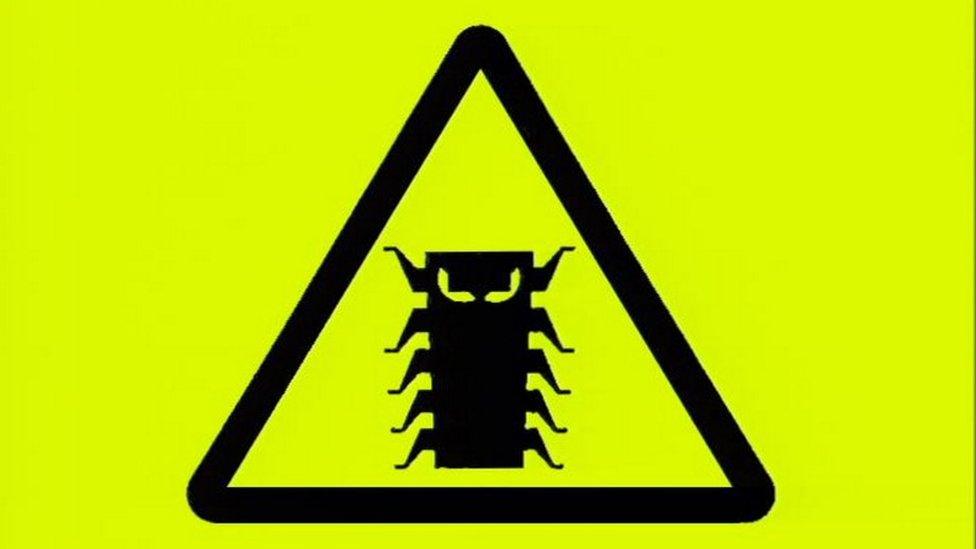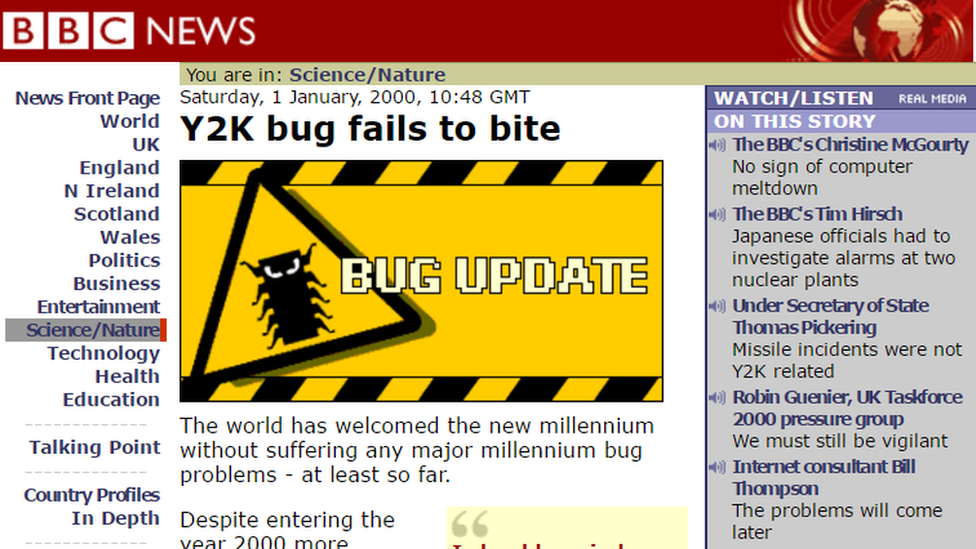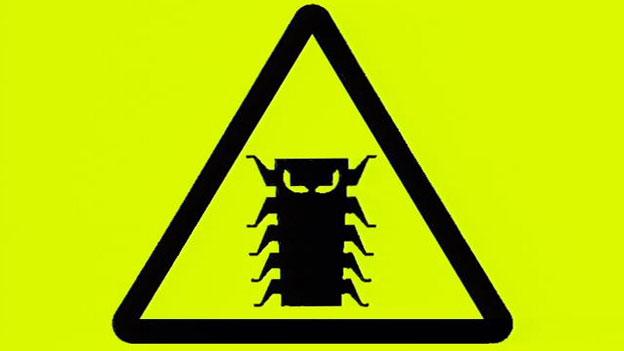Millennium bug - was it a myth?
- Published

Remember the millennium bug?
I certainly do - in the late 1990s, I interviewed a number of experts warning many computers would not cope when the date flicked over to 01/01/2000.
Huge sums were spent to prepare for the consequences of this bug - or rather feature - in the way some older systems handled dates.
But midnight passed on the 1 January and the crisis failed to materialise - planes did not fall from the sky, power stations did not melt down.
So was the Y2K bug all a fuss about nothing?
That is certainly the view of Sir Bernard Jenkin MP who has compared what he believes are exaggerated fears about a no-deal Brexit to the bug.
He told BBC Radio 4's Today programme on Monday: "We will look back and wonder what all the fuss was about - a bit like the millennium bug, remember all the experts on the millennium bug?"

BBC News reported no "major" issues on the first day of the 21st Century
On Twitter, I asked people who had been involved in battling the bug for their response to this remark.
There followed a tidal wave of tweets, nearly all of them hostile to Sir Bernard's analysis.
IT experts recalled their work in the late 1990s.
"I spent months during 1998-99 checking and fixing software to make sure that radio systems for emergency services et cetera didn't fail," said Peter West.
Frances Coppola, who was working for an insurance company running teams of analysts and programmers, said: "We found bugs and we fixed them. It's because we did such a good job that people who weren't involved think there was never a problem."

Richard Gaywood, who worked as an intern on Y2K testing in the nuclear industry for three summers, said: "We tested every scrap of software we had. I, personally, spent weeks and weeks on just one of them. I didn't find bugs. Colleagues did. They were fixed in good time."
James Christie, who was working as a test manager for IBM at an insurance company, said: "I wrote a report warning that without remedial Y2K work the company [one of the biggest UK insurers] couldn't produce credible accounts that would pass the annual audit. The share price would have crashed. I was believed."
And Matthew Hackling said: "I climbed through the roof spaces of maximum security prisons doing inventory of PLCs [programmable logic controllers] for Y2K - 80% of systems worked fine, 15% date-rolled over to [the] 1970s, 3% failed, maybe 2% catastrophically."
Now, I did get one response from an IT consultant in the City, John McGregor, who thought the introduction of the euro had been a much bigger problem.
He said: "[The] millennium bug was largely a myth. Everything [was] checked. Only [a] tiny proportion of very badly written software had [an] issue."
'Hard work'
But just about everyone else said it was only thanks to huge amounts of effort and years of planning that the real threat from the bug had been mitigated.
Alec Muffett, who worked at Sun Microsystems from 1992 to 2009, said: "Anyone saying the millennium bug was in some sense a damp squib is ignoring that its being a squib was due to hard work."
Of course many of those involved made a great deal of money from the Y2K preparations and you would not expect them to look back and reflect that their employers had bought into a myth.
But whatever the true scale of the threat, it seems clear that doing nothing about the millennium bug in the late 1990s was not an option that industries dependent on the smooth running of computer systems could afford to take.
Just by comparison, imagine telling the NHS and other organisation in 2016 that there was no need to update ageing Windows systems to counter the threat from ransomware.
Sensible advice about a mythical danger - or reckless complacency? You decide.
- Published31 December 2014
